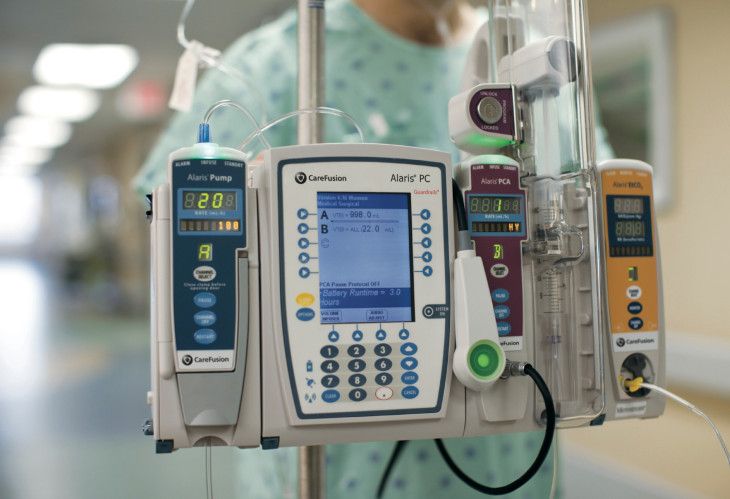The medical needs of patients vary depending on their condition and on their needs. Quite often it becomes necessary to accurately measure the inflow of fluids and medication and to regulate these. Most of the drugs administered to patients during critical ailments need to be monitored closely. Also, these need to be delivered intravenously to act quickly and be more effective. This makes it important for us to use infusion pumps. An infusion pump is a medical device that is used to deliver medication and fluids intravenously into a patient’s circulatory system. Medicines from cancer drugs (chemotherapy), antibiotics, insulin, analgesics, and a number of other medicines can be administered through infusion pumps.
The need for infusion pumps
As mentioned earlier, infusion pumps are of great help in emergency conditions and in hospital settings where the patient needs to be administered carefully regulated doses of medicines and fluids. In most emergency cases, the patient is unable to orally ingest medicines. Infusion therapy is the perfect alternative. Injections are typically used to administer single doses of medicines while an infusion pump can keep up the flow over a period of time. Also, oral medication has a longer response time than intravenous infusion making infusion pumps very important devices.
Types of infusion pumps
Infusion pumps have been used by medical practitioners since the 1960s. With advances being made in medicine, technology and design, however, these pumps have evolved. Infusion pumps can be classified based on mobility and delivery volume.
Based on mobility –
Stationary infusion pumps: Infusion pumps typically used in hospital settings. These are heavier than ambulatory pumps and are used to treat patients who are in hospital beds. They are used to administer medication and fluid infusions to bedridden patients or those with chronic medical and fluid.
Ambulatory infusion pumps: Ambulatory infusion pumps are light and portable. Infusion pumps which are both lightweight and mobile are excellent aids for patients who need medication throughout the day but also require mobility. These ambulatory infusion pumps are great for home use as well. Like the Littman steth, a home use infusion pump can be bought from online medical supplies stores such as Smart Medical Buyer. A number of these pumps are also ‘Patient-Controlled Analgesia Pumps’. This means that patients can control the dosage and level of drugs being delivered. These usually come with inbuilt safety mechanisms to prevent overdosing.
Based on delivery volume –
Syringe pumps: Syringe pumps are meant to deliver small quantities of medications. This is best suited to administer medicines that are typically in small volumes. The syringe pump has a plunger-like pumping mechanism and has a system that controls the delivery of medicines. These pumps can hold about 50 ml of the medication and can deliver very small hourly doses such as 5ml an hour.
Large volume pumps: Large volume pumps or LVPs are capable of holding and administering larger doses of medicines and fluids. The delivery system of these pumps is controlled by an electronic peristaltic pump. The pump is controlled manually by a trained medical professional or by a computer programmed system.
Traditional infusion pumps are great for long term use by patients with chronic conditions. These can be used to administer fluids, cancer drugs, painkillers, antibiotics etc. Specialized infusion pumps are now being produced to suit the needs of specific patients. These are personalised pumps that can be implanted in the patient. Some insulin pumps are also customised to suit the intermittent use of the patients. With the price of these specialized infusion pumps nearly the same as a stethoscope cost, these are greatly preferred for home use.
If you are looking to buy a high-quality infusion pump online, it is best to look for a reliable stockist of high-quality medical supplies devices. Smart Medical Buyer is the best place to stock up on all your medical needs from tuberculin syringe to blood pressure monitors.


